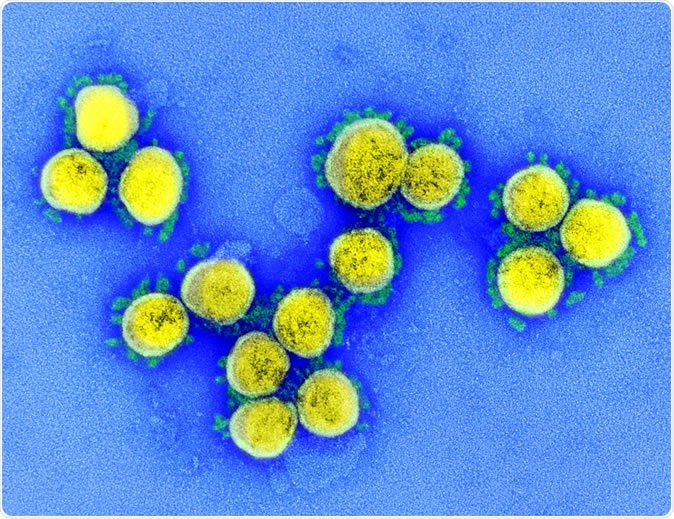As the world continues to grapple with the coronavirus pandemic, many scientists, institutions, and pharmaceutical companies are working hard to develop an effective vaccine.
Now, a team of Oxford University scientists, in partnership with AstraZeneca, a British-Swedish multinational pharmaceutical and biopharmaceutical company, has developed a vaccine that has shown promise against severe acute respiratory syndrome coronavirus 2 (SARS-CoV-2) that causes COVID-19 disease.
The researchers trialed the potential coronavirus vaccine on six monkeys, wherein some were given a single shot of the vaccine and went on to develop antibodies against the virus within 14 days. The single dose of the investigational vaccine protected six rhesus macaques from SARS-CoV-2 pneumonia.
Published on the preprint server, bioRxiv*, the study findings are not yet peer-reviewed but are made available in advance of journal publication so as to help in the battle against the novel coronavirus which has infected more than 4.71 million people across the globe.

SARS-CoV-2 - Transmission electron micrograph of SARS-CoV-2 virus particles, isolated from a patient. Image captured and color-enhanced at the NIAID Integrated Research Facility (IRF) in Fort Detrick, Maryland. Credit: NIAID

 This news article was a review of a preliminary scientific report that had not undergone peer-review at the time of publication. Since its initial publication, the scientific report has now been peer reviewed and accepted for publication in a Scientific Journal. Links to the preliminary and peer-reviewed reports are available in the Sources section at the bottom of this article. View Sources
This news article was a review of a preliminary scientific report that had not undergone peer-review at the time of publication. Since its initial publication, the scientific report has now been peer reviewed and accepted for publication in a Scientific Journal. Links to the preliminary and peer-reviewed reports are available in the Sources section at the bottom of this article. View Sources
The vaccine
AstraZeneca and the University of Oxford announced an agreement for the global development of the vaccine, which is a recombinant adenovirus vaccine aimed at blocking SARS-CoV-2 infection.
The vaccine candidate is known as ChAdOx1 nCoV-19, and was developed by the Jenner Institute and Oxford Vaccine Group. It utilizes a replication-deficient chimpanzee adenovirus to deliver a SARS-CoV-2 protein to trigger a protective immune response.
The vaccine will be carried by a vector that has been made from a virus affecting chimpanzees, known as adenovirus. The vector has the genetic code of the protein spikes seen on the coronavirus. Just one dose will trigger a robust immune response. The adenovirus vector cannot replicate, preventing causing an ongoing infection in the vaccinated person.
The investigational vaccine has been used to develop vaccines against other pathogens, such as the Middle East respiratory syndrome (MERS) coronavirus, which is a close relative of the current SARS-CoV-2. The biopharmaceutical company is responsible for developing and worldwide manufacture of the vaccine.
“As COVID-19 continues its grip on the world, the need for a vaccine to defeat the virus is urgent. This collaboration brings together the University of Oxford’s world-class expertise in vaccinology and AstraZeneca’s global development, manufacturing, and distribution capabilities. Our hope is that, by joining forces, we can accelerate the globalization of a vaccine to combat the virus and protect people from the deadliest pandemic in a generation” Pascal Soriot, Chief Executive Officer of AstraZeneca, said.
The trial
The team of scientists adapted the platform to SARS-CoV-2 and showed that the vaccine rapidly triggered immune responses against the coronavirus in mice and monkeys. The latest trial was on testing in rhesus macaques at the National Institute of Allergy and Infectious Diseases Rocky Mountain Laboratories in Montana.
During the trial, six monkeys received the vaccine about 28 days before being exposed to SARS-CoV-2, which were compared to three control animals who did not receiver the vaccine. The team observed a significantly reduced viral load in bronchoalveolar lavage fluid and respiratory tract tissue of vaccinated monkeys, compared to the control groups. In the vaccinated monkeys, there was no pneumonia observed.
After showing promise in laboratory animals, the vaccine is now ready for human clinical trials. The safety, immunogenicity, and effectiveness of the vaccine against COVID-19 will now be assessed in randomized controlled human clinical trials.
The coronavirus disease has ravaged through 188 countries and territories, prompting scientists all over the world to develop a vaccine to prevent infection. Finding and developing a potent vaccine is vital to help protect the population, especially those who are at a high risk of experiencing severe COVID-19.
The United States is the hardest-hit nation with a staggering 1.48 million confirmed cases and more than 89,000 deaths.

 This news article was a review of a preliminary scientific report that had not undergone peer-review at the time of publication. Since its initial publication, the scientific report has now been peer reviewed and accepted for publication in a Scientific Journal. Links to the preliminary and peer-reviewed reports are available in the Sources section at the bottom of this article. View Sources
This news article was a review of a preliminary scientific report that had not undergone peer-review at the time of publication. Since its initial publication, the scientific report has now been peer reviewed and accepted for publication in a Scientific Journal. Links to the preliminary and peer-reviewed reports are available in the Sources section at the bottom of this article. View Sources
Source:
Journal references:
- Preliminary scientific report.
Doremalen, N., Lambe, T., Spencer, A. et al. (2020). ChAdOx1 nCoV-19 vaccination prevents SARS-CoV-2 pneumonia in rhesus macaques. bioRxiv. https://www.biorxiv.org/content/10.1101/2020.05.13.093195v1
- Peer reviewed and published scientific report.
Doremalen, Neeltje van, Teresa Lambe, Alexandra Spencer, Sandra Belij-Rammerstorfer, Jyothi N. Purushotham, Julia R. Port, Victoria A. Avanzato, et al. 2020. “ChAdOx1 NCoV-19 Vaccine Prevents SARS-CoV-2 Pneumonia in Rhesus Macaques.” Nature586 (July). https://doi.org/10.1038/s41586-020-2608-y.https://www.nature.com/articles/s41586-020-2608-y.